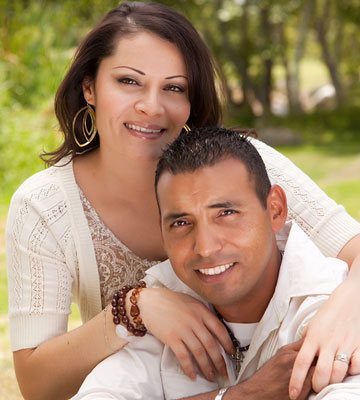HGH for Skin

Getting older does not have to mean looking old beyond one’s years. While that may mean something different to each person, ultimately the desire is to avoid or banish wrinkles and sagging skin in order to maintain a healthy, youthful glow. The role of growth hormone in this process has been long studied by many in the medical and scientific community, and a report on the effects of HGH for skin was released by doctors in Rio de Janeiro in late 2011. This study, titled “Growth Hormone System: Skin Interactions,” is turning the way hormone replacement specialists in the US are helping adults maintain a younger appearance.
We know that growth hormone production starts to decline at some point in a person’s early thirties. The level of this decrease will naturally differ from one person to the next. Genetics, health, and lifestyle choices can all play a role in this process that can affect the production of HGH and skin health. That is why some people still look young well into their late sixties and seventies while others seem way beyond their years by their late thirties and early forties.
How is HGH good for your skin?
- HGH plays an integral role in the regeneration of cells
- The skin is made up of 3 layers – the epidermis, the dermis, and the hypodermis – all made up of a number of different and unique cells that form their structure
- When growth hormone production declines (up to 14% each decade), the production of these cells will also see a significant decrease
- HGH supplementation to combat growth hormone deficiency will regenerate the cellular production that is crucial to protecting and improving skin quality
What is important to know is that there are no over-the-counter HGH products for skin no matter what some companies would have consumers believe. HGH is a prescription-only medication that is biologically identical to the naturally occurring growth hormone in the body.
The Effects of Growth Hormone Deficiency on the Skin
The effects of HGH in regards to the skin are widespread. As we look at the human growth hormone skin benefits that will come from treatment, it may be helpful to point out and explain one of the adverse reactions that can occur when there is too much GH in the body.
In regards to the negative HGH skin side effects that could occur with acromegaly – a condition stemming from an overabundance of growth hormone – we find that the skin becomes uncommonly thick, rough, and oily. HGH will help to thicken the skin, something that is often lost with age.
In the case of individuals dealing with growth hormone deficiency, the opposite occurs, as is shown in the information below:
- Collagen Loss
One of the biggest concerns for the skin as people age is collagen loss. The decrease in cellular reproduction is what attributes to this process. The administration of HGH for aging skin will bring increased collagen production that is crucial for the maintenance of healthy skin.
- Thinning of the Skin
The loss of collagen and the reduction of new cells needed for the three layers of the skin are the issues that contribute to the thinning of the skin is that is seen in the latter decades of life. This skin thinning contributes to a higher incidence of cuts, bruising, and injury that can lead to infection and subsequent serious medical conditions in later years. The use of HGH in skin care involves a cross-reaction between cells from both the epidermis and the dermis in a three-stage process:
- Inflammatory reaction where blood clots are formed as the inflammatory cells reach the injured area so that the keratinocytes can migrate through the wound to initiate reepithelialization
- Formulation of granulation tissue as keratinocytes inside the wound proliferate and begin to restore the dermis
- Remodeling of the granulation tissue through vascular regression and a reduction in dermal cell density
- Sagging, Wrinkles, and Cellulite
With the loss of collagen come a decrease in skin elasticity, and an increase in the appearance of cellulite, wrinkles, and sagging. The effects of HGH on skin texture not only improves the collagen production and thickness, but reduces the overall appearance of cellulite, sagging, and wrinkles while firming and tightening the skin.
Clearly, in answer to how is HGH good for skin in later years of life, the ability to strengthen, improve texture and tone, and restore collagen has many different growth hormone skin benefits for long-lasting effects.
HGH Benefits for the Skin
There is no doubt that the many benefits of HGH for better skin can make quite a difference as the years pass. Yes, there are excellent restorative changes that will occur that will make a person appear years, if not decades younger. Firmer, tighter skin is certainly something that is sought after and evident by the sheer depth of the skin care industry.
While there is no such thing as selling HGH for skin care directly, as there must be a medical need for this treatment, many people who find that they are dealing with premature aging effects and collagen loss often test positive for growth hormone deficiency in the blood tests run by our doctors here at Kingsberg Medical.
In order to get the best HGH for skin, an HRT doctor will determine the appropriate treatment for each individual following a careful review of blood test, physical exam, and health history reports. This will result in positive benefits that will affect the entire body, and not just the face or skin.
If you are tired of throwing away money on skin care products that do not work, and you suspect that your problems may stem from growth hormone deficiency, contact Kingsberg Medical for a free and confidential consultation with an HRT specialist.
Brian Leeber



















